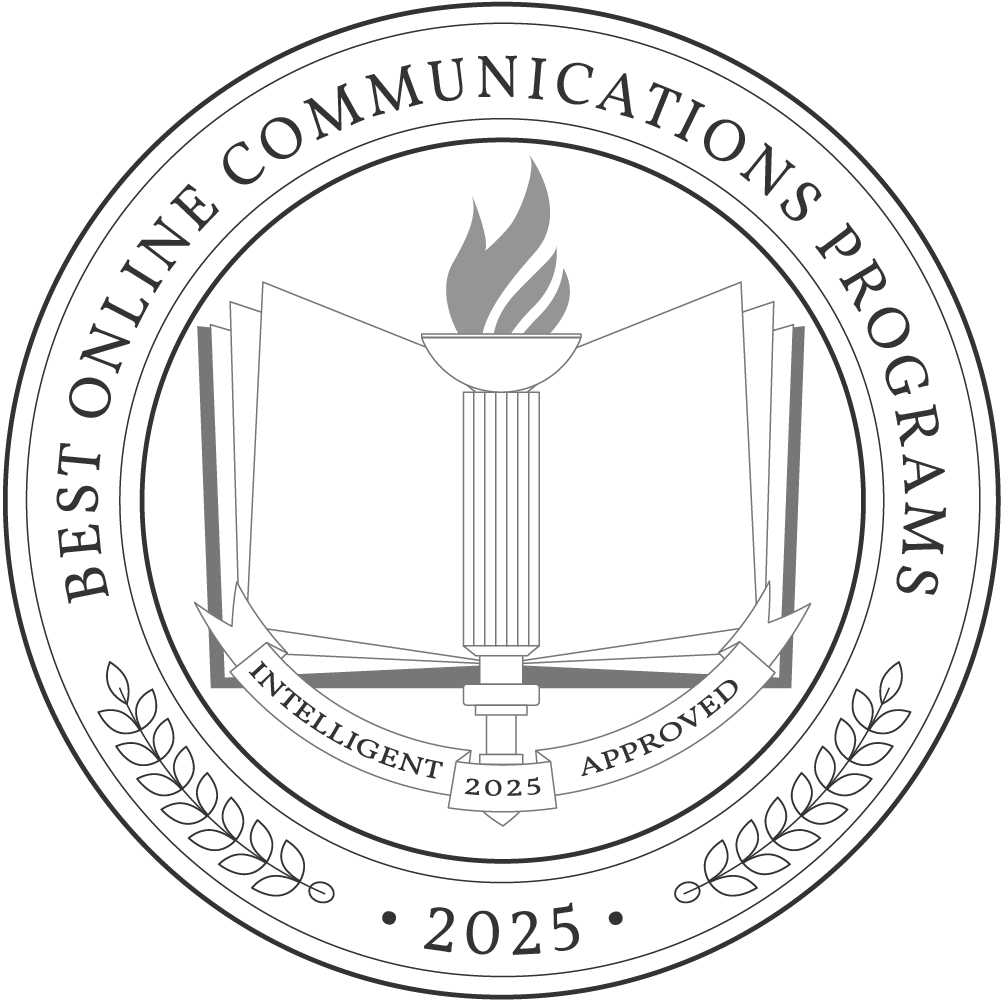A degree in communications can serve as the gateway to a prosperous career across diverse industries, as it provides graduates with transferable skills valued in virtually every professional sphere. These programs prepare graduates for an array of roles, such as:
- Public relations specialist, with a median annual salary of $66,750
- Public relations manager, with a median annual salary of $130,480
- Marketing manager, with a median annual salary of $156,580
A bachelor’s degree program in this field typically takes three to four years for undergraduates to complete, while a master’s degree program spans one to two years. Annual tuition costs average $14,688 for undergraduate programs and $20,513 for graduate programs. With ample financial aid opportunities available, earning this degree without a substantial financial burden is possible.
Why Trust Us
The Intelligent.com Higher Education Team is dedicated to providing students with independent, equitable school and program rankings and well-researched resources. Our expert-driven articles cover topics related to online colleges and programs, paying for school, and career outlooks. We use data from the U.S. Department of Education’s College Scorecard, the National Center for Education Statistics, and other reputable educational and professional organizations. Our academic advisory team reviews content and verifies accuracy throughout the year for the most current information. Partnerships do not influence rankings or editorial decisions.
- Analyzed over 2,000 national, accredited, and nonprofit colleges and universities
- 800+ rankings pages are reviewed and updated yearly
- Content is informed by reputable sources, surveys, and interviews with academic advisors and other experts
- Over 100 data points are reviewed for accuracy and quality throughout the year, including sources
How we rank schools
Our list features the best online Communications degree programs at top colleges nationwide. Each school featured is a nonprofit, accredited institution — either public or private — with a high standard of academic quality for post-secondary institutions.
We evaluated each school’s program on tuition costs, admission, retention and graduation rates, faculty, reputation, and the student resources provided for online students. We collected data from trusted sources like the National Center for Education Statistics, individual school and program websites, school admissions counselors, and other data sources. Then, we calculated the Intelligent Score on a scale of 0 to 100 based on the following criterion:
Academic Quality:
- Admission rate versus enrollment rate
- Retention rate of students who return after year one
- Accreditation status (regional and programmatic)
- Nonprofit status, both private and public institutions
Graduation Rate
- Overall graduation rate
- Total number of currently enrolled students, including diversity metrics
- Student-to-faculty ratio
Cost and ROI
- In-state and out-of-state per-credit tuition rates and fees
- Required credits to graduate
- Earning potential after graduation
- Availability of federal student loans, scholarships, and other financial aid options
Student Resources
- Available student services for online-only and hybrid programs
- On-campus amenities like tutoring centers and the number of libraries
Read more about our ranking methodology.
Best 49 Accredited Online Communications Programs
FiltersInstitution Type
Status
- Intelligent Score
- Alphabetically By University Name
- Acceptance Rate
- Enrollment
- In-state Graduate Tuition
- Out-of-state Graduate Tuition
- In-state Undergraduate Tuition
- Out-of-state Undergraduate Tuition

University of Central Florida
Intelligent Score: 99.44In-state: $4,478
Out-of-state: $19,810
In-state: $6,916
Out-of-state: $6,916
SAT: 1160-1340
ACT: 25-30
The University of Central Florida offers an online Bachelor of Arts in Communication and Conflict. This program recognizes that although conflict is a necessary part of human life, many people struggle to resolve it on their own. Students earning this degree learn conflict resolution techniques to help others navigate their disagreements, both large and small. Graduates can pursue careers in many industries, including counseling, family law, and human resources. Before applying, students are encouraged to connect with a success coach to discuss the application process in detail and go over any additional application requirements.
In-State: $179
Out-of-State: $715
Online
Southern Association of Colleges and Schools Commission on Colleges
120

Florida International University
Intelligent Score: 97.92In-state: $4,721
Out-of-state: $16,529
In-state: $8,912
Out-of-state: $8,912
SAT: 1110-1260
ACT: 23-29
Florida International University offers an online Bachelor of Arts in Communication Arts. Students receive a foundational education in business and interpersonal communication, the art of persuasion, and group dynamics. With only one prerequisite course in Public Speaking, this degree gives students significant control over the courses they can take to fulfill degree requirements. Sample courses include Persuasion, Conflict Management, and Communication for Effective Leadership. This degree is a great option for those looking to pursue a career as a communication officer in a variety of industries or an advanced degree in social work, law, business administration, or education. To apply, students must submit an online application, all relevant transcripts, and SAT/ACT scores.
In-State: $235
Out-of-State: $648
Online
Southern Association of Colleges and Schools Commission on Colleges
120

Appalachian State University
Intelligent Score: 95.57In-state: $4,242
Out-of-state: $19,049
In-state: $4,839
Out-of-state: $4,839
SAT: 1070-1240
ACT: 22-27
Students who earn a bachelor's in Communication at the Appalachian State University benefit from a fully comprehensive online education. Rather than provide multiple specialties, Appalachian State offers a straightforward curriculum that equally touches on the many different facets of communication. Graduates often pursue careers in a variety of industries, including the business, health care, nonprofit, and legal sectors. Current and former members of the military are granted priority admission, and nonmilitary members are considered for admission on a case-by-case basis. Applications for freshmen and transfer students are accepted. To apply, students must have a high school diploma and submit all relevant transcripts.
$204
Online
Southern Association of Colleges and Schools Commission on Colleges
120

Arizona State University
Intelligent Score: 95.35In-state: $10,710
Out-of-state: $28,800
In-state: $11,720
Out-of-state: $11,720
SAT: 1100-1320
ACT: 21-28
$563
Online
Higher Learning Commission
120

Embry - Riddle Aeronautical University
Intelligent Score: 94.85In-state: $36,456
Out-of-state: $36,456
In-state: $18,228
Out-of-state: $18,228
SAT: 1140-1320
ACT: 23-29
Embry-Riddle Aeronautical University offers an online Bachelor of Science in Communication that is grounded in science and technology. Students learn aviation, aerospace, and technical vocabulary to prepare for a career in traditional media or corporate or aviation communication. Degree customization is possible with Embry-Riddle's long list of minors, and students gain hands-on experience with options in visual design, photography, news writing, and reporting. Prospective students must submit an online application, official transcripts, and ACT/SAT scores to be considered for admission. Embry-Riddle encourages students to meet with an admissions counselor to learn more about the program and any additional application materials.
$503
Online
Southern Association of Colleges and Schools Commission on Colleges
120

PennState World Campus
Intelligent Score: 93.64In-state: $15,025
Out-of-state: $24,413
In-state: $22,464
Out-of-state: $22,464
SAT: 1070-1300
ACT: 24-29
$626 - $671
Online
Middle States Commission on Higher Education
120

University of Arkansas
Intelligent Score: 92.74In-state: $7,568
Out-of-state: $24,056
In-state: $7,752
Out-of-state: $7,752
SAT: 1090-1280
ACT: 23-29
$255
Online
Higher Learning Commission
120
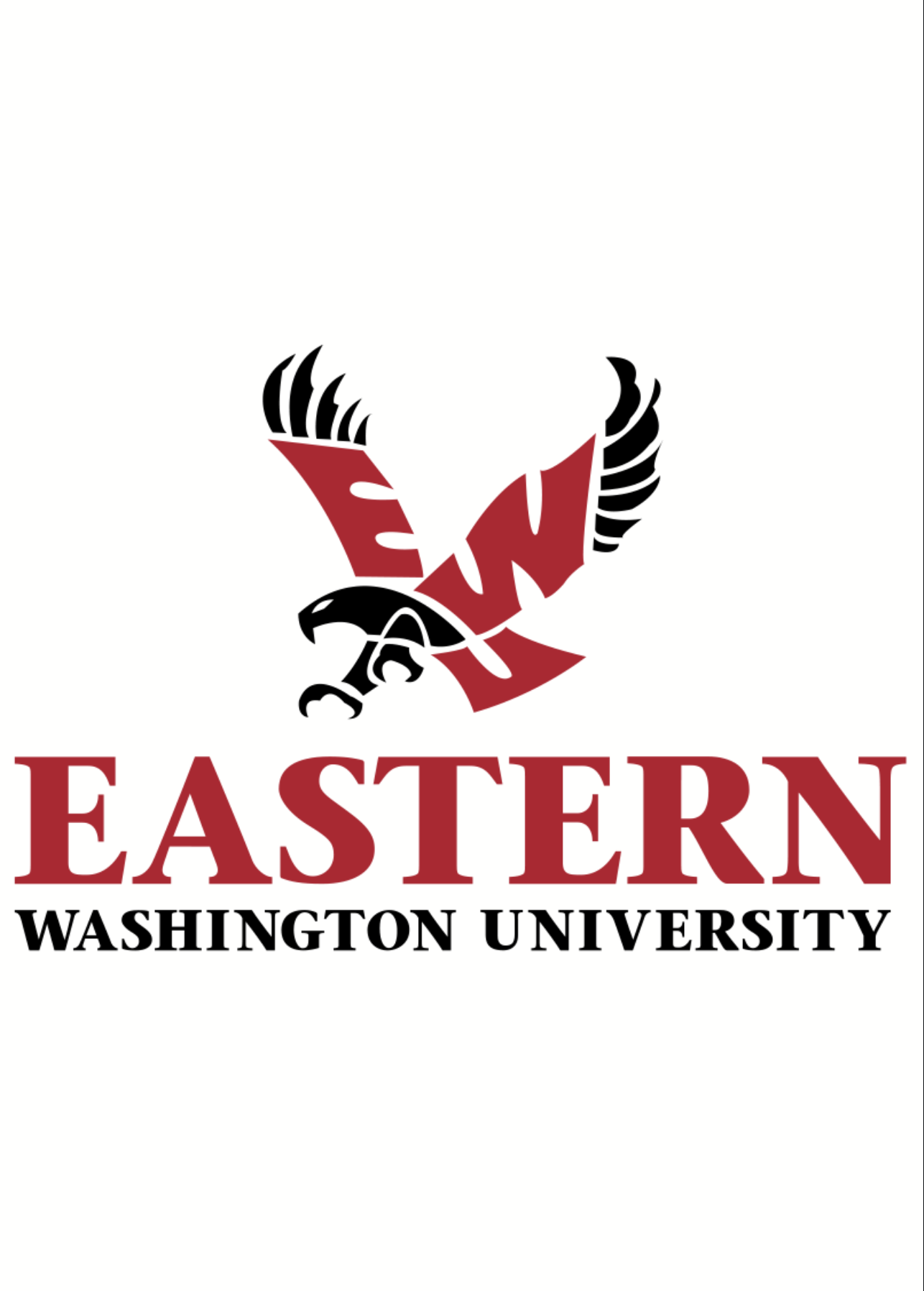
Eastern Washington University
Intelligent Score: 92.07In-state: $6,707
Out-of-state: $24,676
In-state: $12,015
Out-of-state: $12,015
SAT: 880-1090
ACT: 16-23
Eastern Washington University's online bachelor's in Communication offers a general track and an additional option for a concentration in Public Relations. Students take foundational courses in Mass Media, Research Methods, and Public Speaking before they take courses specific to their concentration. Options for elective courses include Social Media Platforms and Planning, Political Communication, and Gender and Communication. The general track prepares students for careers in marketing and business while the Public Relations concentration prepares students for careers in web publishing, journalism, and public relations. To apply, both freshmen and transfer students must submit an online application and all relevant transcripts.
In-State: $243
Out-of-State: $827
Online, On-Campus
Northwest Commission on Colleges and Universities
120
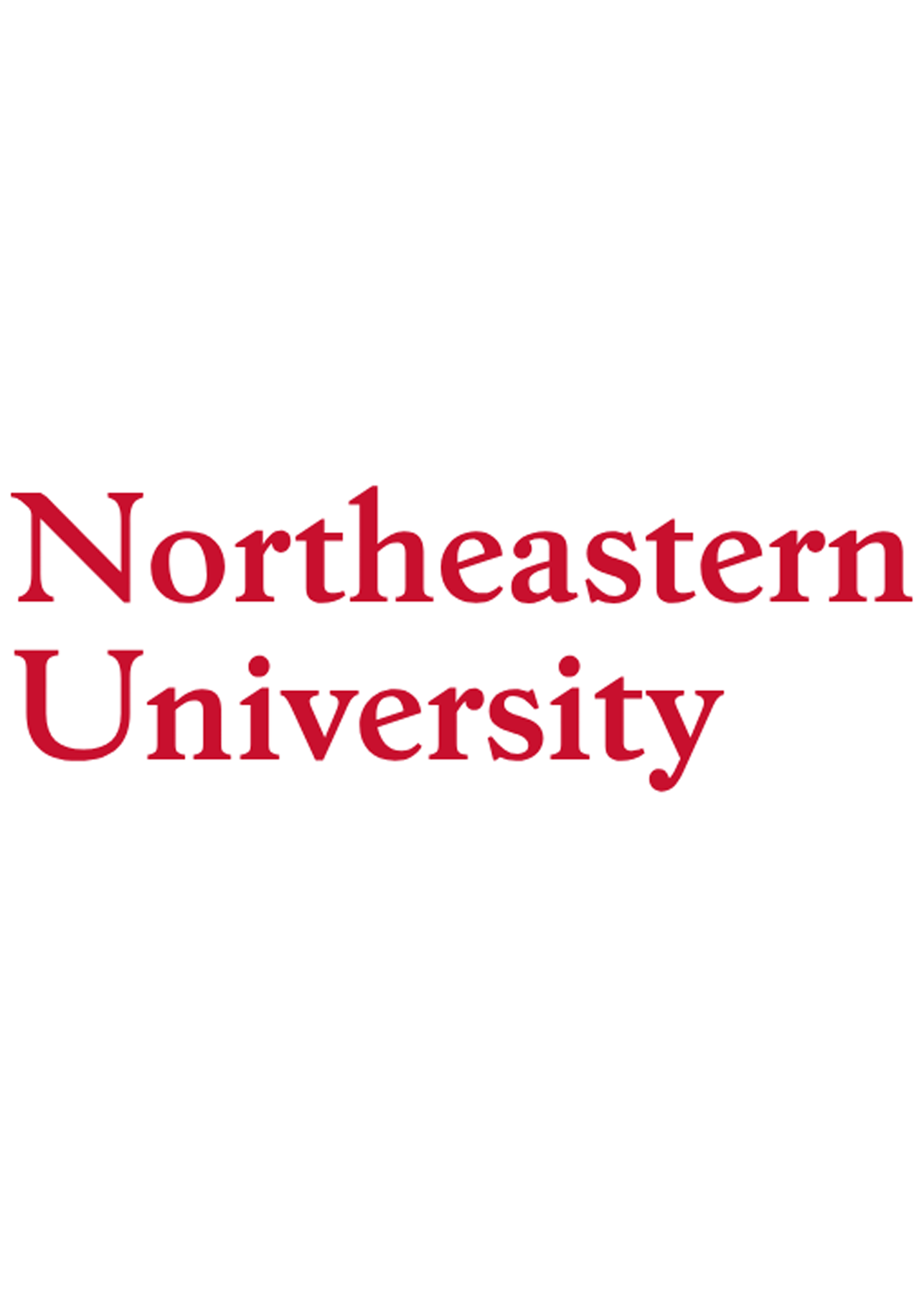
Northeastern University
Intelligent Score: 91.62In-state: $54,360
Out-of-state: $54,360
In-state: $25,264
Out-of-state: $25,264
SAT: 1410-1540
ACT: 33-35
$541
Online
New England Association of Schools and Colleges
120
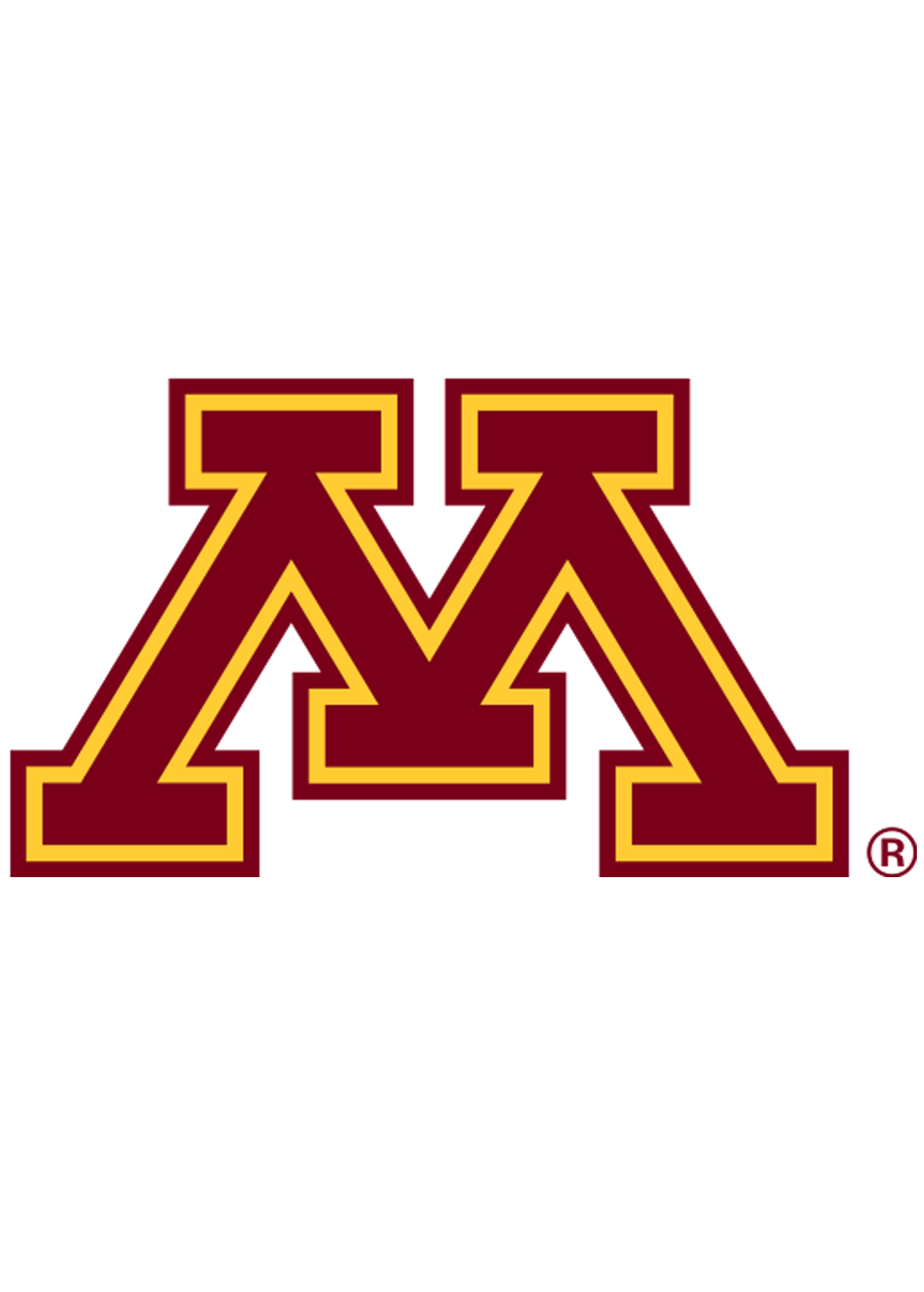
University of Minnesota
Intelligent Score: 90.55In-state: $13,318
Out-of-state: $31,616
In-state: $17,580
Out-of-state: $17,580
SAT: 1240-1460
ACT: 25-31
$441
Online
Higher Learning Commission
120

University of North Dakota
Intelligent Score: 90.12In-state: $8,540
Out-of-state: $12,810
In-state: $11,060
Out-of-state: $11,060
SAT: 1000-1230
ACT: 20-27
In-State: $384
Out-of-State: $577
Online, On-Campus
Higher Learning Commission
120

Trine University
Intelligent Score: 89.92In-state: $32,990
Out-of-state: $32,990
In-state: $41,457
Out-of-state: $41,457
SAT: 1010-1210
ACT: 20-27
$460
Online, On-Campus
Higher Learning Commission
120

Indiana University-East
Intelligent Score: 89.86In-state: $9,815
Out-of-state: $36,194
In-state: $9,786
Out-of-state: $9,786
SAT: 1120-1350
ACT: 24-31
In-State: $242
Out-of-State: $352
Online
Higher Learning Commission
120
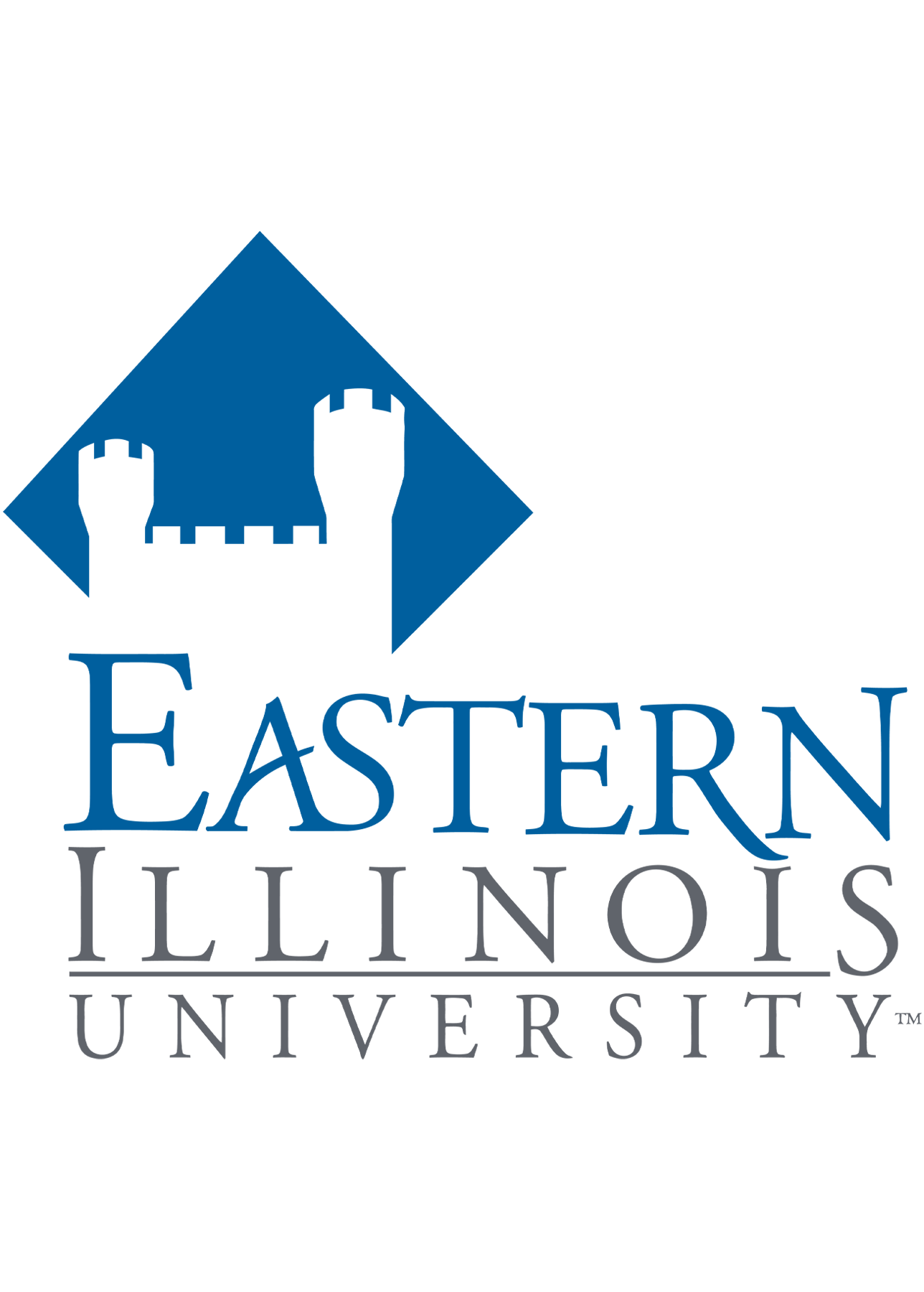
Eastern Illinois University
Intelligent Score: 89.35In-state: $9,036
Out-of-state: $11,231
In-state: $7,503
Out-of-state: $7,503
SAT: 960-1140
ACT: 18-23
In-State: $330
Out-of-State: $412
Online
Higher Learning Commission
120
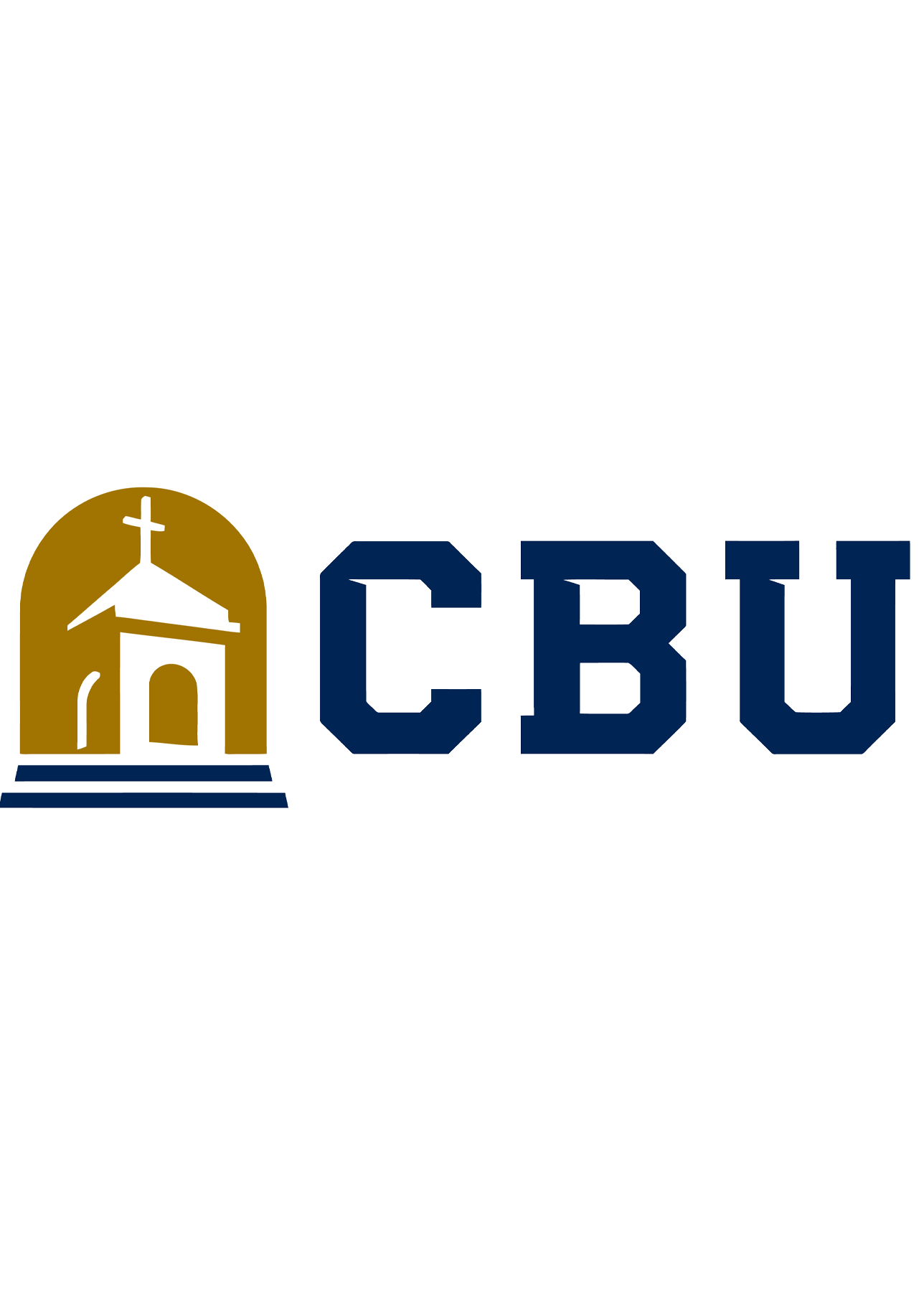
California Baptist University
Intelligent Score: 89.30In-state: $33,930
Out-of-state: $33,930
In-state: $13,410
Out-of-state: $13,410
SAT: 960-1150
ACT: 18-25
$520
Online
Western Association of Schools and Colleges
120

University of Florida
Intelligent Score: 88.68In-state: $4,477
Out-of-state: $25,694
In-state: $10,770
Out-of-state: $10,770
SAT: 1290-1460
ACT: 29-33
In-State: $129
Out-of-State: $552
Online
Southern Association of Colleges and Schools Commission on Colleges
120

University of Arizona
Intelligent Score: 87.10In-state: $10,990
Out-of-state: $33,273
In-state: $11,938
Out-of-state: $11,938
SAT: 1090-1350
ACT: 21-29
$500
Online
WASC Senior College and University Commission
120

The University of Texas Permian Basin
Intelligent Score: 87.03In-state: $11,448
Out-of-state: $40,032
In-state: $12,028
Out-of-state: $12,028
SAT: 1210-1470
ACT: 26-33
$362
Online
Southern Association of Colleges and Schools Commission on Colleges
120
How to Choose an Online Communications Degree Program
Choose your area of study
Communications is a broad field, and while obtaining a general communications degree is possible, many students choose to align their studies with their career goals by selecting a concentration.
To choose yours, evaluate your interests and the field’s projected growth. While some areas, like public relations and digital media, are expected to increase in demand over the next decade, other fields, like broadcast reporters and correspondents, are expected to decline. You can make an informed choice by researching which specialization aligns with your goals and the evolving industry demands. Opting for a profession with projected growth over the next decade ensures better career prospects.
Research schools and programs
You should only apply to institutions that have been approved by a DOE-recognized regional accrediting organization, such as the New England Commission of Higher Education or Northwest Commission on Colleges and Universities. These organizations evaluate schools to ensure they provide students with a high-quality education. Those who attend a school that isn’t regionally accredited may be unable to access financial aid or transfer credits to another institution if needed.
For undergraduates, consider factors like available specializations, internship opportunities, and the faculty who teach there. Prospective graduate students should explore the program curriculum, faculty credentials, and industry connections, focusing on aligning their chosen specialization with the program’s strengths. Check for alumni success stories and networking opportunities.
Both levels should carefully explore each program’s affordability, flexibility, and career support services, as these features can help ensure success in future years. To learn more about any schools that you’re interested in, you can visit the school’s website, contact an admissions counselor, follow the school on social media, or attend an in-person or virtual open house.
Prepare for tests and applications
Application requirements vary by school and program. Once you’ve narrowed your school choices, focus on test preparation and application steps.
For undergraduates, prepare for standardized tests like the SAT or ACT and gather required documents like transcripts and recommendation letters. Write a compelling personal statement illustrating your passion and potential contributions to the program and the broader field.
Graduate students should prepare for the GRE or GMAT and maintain current transcripts and recommendation letters. It’s also important to craft a strong statement of purpose that highlights your alignment with the chosen program. And you should always contact an admissions counselor to ensure you have the most accurate information regarding program requirements.
Select your program
Before making your final decision, review your needs and goals again. Do you plan to attend school full-time or part-time? Do you want your program to be as online as possible, or are you fine with a hybrid program that has a fair amount of in-person requirements? Some programs offer asynchronous courses, which can be completed at your own pace, while others only offer synchronous courses, which involve remotely attending lectures and completing assignments at the same time as other students — which of these two online learning formats do you prefer? Your school should accommodate your scheduling needs and learning preferences.
Determine how you’ll pay for your degree
Speak to financial aid counselors at the schools you’re interested in for the most accurate and specific information about program cost. Many resources are available to help finance an undergraduate or graduate communications degree, including scholarships, grants, and financial aid options offered by schools and external organizations. Completing the Free Application for Federal Student Aid is essential, as it determines your eligibility for federal grants, loans, and work-study programs. Those who already work in the field should see if their employer offers tuition assistance benefits as well.
What Can You Expect From an Online Communications Program?
By earning your communications degree, you’ll engage with an all-encompassing curriculum covering essential aspects of effective communication — including verbal and written communication, media literacy, public relations, and digital media. These programs provide transferable skills critical in every industry, like creating persuasive messages, engaging content, and social media strategy.
Students earning their undergraduate degree will typically take four years to graduate from these programs, while those seeking a graduate degree take less time, approximately two years.
While most courses are delivered entirely online, some programs offer internships to provide practical, hands-on experience. Many students appreciate these opportunities, as they can help further develop skills and be a resume booster.
Potential courses you’ll take in an online communications program
- Media Writing and Journalism: A requirement in both undergraduate and graduate curricula, this course focuses on honing skills in news writing, feature articles, and online content creation. Students learn to craft compelling narratives, adhere to journalistic ethics, and adapt writing styles for different media platforms.
- Public Relations and Strategic Communication: Another standard requirement, this course encourages students to delve into the principles of building and maintaining a positive public image for organizations. They study strategies for managing crises, developing effective communication campaigns, and leveraging media to convey messages that resonate with target audiences.
- Digital Media Production: Frequently an elective, this hands-on course equips students with multimedia production skills, including video editing, audio production, and graphic design. They gain practical experience creating engaging content for digital platforms and learning to navigate various tools and software.
- Intercultural Communication: This course fosters understanding and adaptability by exploring communication dynamics across diverse cultures. Students examine cross-cultural differences in communication styles, norms, and values, enabling them to effectively engage with global audiences and work in multicultural environments.
What Can I Do With a Communications Degree?
Career outlook
Communications is a versatile degree, as most professions require interpersonal interaction and verbal and written communication skills. Many students who graduate with this degree go on to work in fields like marketing, public relations, broadcasting, journalism, or fundraising.
As social media continues to dominate and shift the cultural landscape, new career paths will likely emerge for those with a communications background. Students specializing in social media or digital marketing in their communications degree program will be well-poised for innovative opportunities in this fast-growing field.
Students with a communications degree can qualify for the following jobs:
- Public relations specialist — Create and maintain a positive public image for the individuals, groups, or organizations they represent, including writing press releases and developing social media campaigns to shape public perception and raise awareness of client’s work.
- Median annual salary: $66,750
- Projected employment growth (through 2032): 6%
- New jobs projected: 25,800 per year
- Advertising, promotions, or marketing manager — Plan programs to generate interest in products or services by working with art directors, advertising sales agents, financial staff, and others to develop strategies and materials.
- Median annual salary: $156,580
- Projected employment growth (through 2032): 6%
- New jobs projected: 34,000 per year
- Writers and authors — Develop various types of content, including advertisements, blogs, websites, books, magazines, and movie, play, and television scripts.
- Median annual salary: $73,690
- Projected employment growth (through 2032): 4%
- New jobs projected: 15,500 per year
Online Communications Degree Frequently Asked Questions
How do I apply to an online communications degree program?
For undergraduate programs, submit your high school transcripts, necessary standardized test scores, letters of recommendation, and a personal statement highlighting your interest in the program and professional goals.
Graduate programs typically require a completed bachelor’s degree, transcripts, letters of recommendation, a resume, and a statement of purpose.
Regardless of the program level, contacting an admissions counselor beforehand is vital to clarify specific requirements, deadlines, and prerequisites. They can guide you through the application process, ensuring a smooth transition into your desired program.
How much does an online communications degree cost?
The average cost of college tuition is $14,688 for undergraduate programs and $20,513 for graduate programs. It’s important to note that many factors can cause this figure to vary — such as whether you plan to attend a public or private institution or your eligibility for in-state tuition. A school’s reputation and program length can also influence costs. It’s crucial to consider each school’s financial aid opportunities, as they can help to manage expenses and keep tuition costs down.
How long does it take to earn an online communications degree?
Typically, full-time undergraduate programs take three to four years to complete, while part-time options may extend the timeline. Graduate degrees usually require one to two years of full-time study. Also, online programs often offer scheduling flexibility, allowing students to earn their degree at their own pace.
Is an online communications degree worth it?
One of the most valuable facets of a communications degree is its versatility. The skills individuals learn in communications programs, including verbal, written, and interpersonal communication, media literacy, public speaking, and digital media, are beneficial in various positions.
Graduates can work in communications-specific industries like print and broadcast journalism, marketing, or public relations or take on communications-related roles in healthcare, government, tech, and finance.
Those who have a bachelor’s degree stand to earn more than those who don’t. According to the BLS, the median weekly salary for bachelor’s degree holders is $1,493, compared to $899 for those with only a high school diploma.
